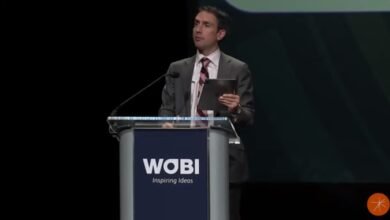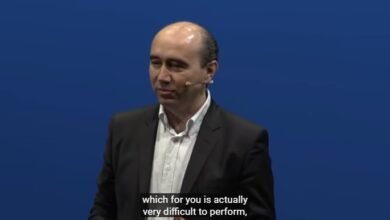David Ulrich on Bringing HR to the Table

YouTube | UCOxcxiUNpYv7NPbxpBobVlg
An interview for the Globe and Mail, Canada’s National Newspaper, with Dave Ulrich, well known HR professor from University of Michigan by Karl Moore, professor at McGill University.
—————————————————————–
Karl Moore: Today I’m delighted to speak with David Ulrich, who’s a senior professor at the University of Michigan and one of the top HR people in the world. Good morning, David.
David Ulrich: Good morning, Karl. It’s great to talk to you.
KM: Good to have you back in Montreal as well. David, one of the things you’ve focused on for the last while is getting HR at the table. What do you mean by that, and how does HR accomplish that?
DU: Very simple challenge. In coming out of the recession in Western Europe, North America, and in Asia, a lot of leaders have said, “We’ve got to manage our people and resources better.” And so the people, organizational issues, have been centre stage. Where do they get advice? HR. They’re not going to always get it from finance or strategy or marketing. HR folks should sit at the table, and when they sit at the table they should add value by helping the business leaders do things that will help their companies be successful.
KM: Why isn’t HR at the table already?
DU: Well, in good companies they are. I always argue 20-60-20: 20 percent of the good companies and good HR people work well together; 20 percent will never get there – the manager may not get there, the HR person may not get there; and it’s the 60 percent in the middle, that through training and teaching, we’re trying to move them to the first twenty. So some are there, some will never get there. I can show you some companies that just would never have good HR.
KM: What are some of the strategic issues that would bring HR to the table, in your mind these days?
DU: Good – let’s pick three or four that are hot issues for some big companies. How do we compete in an emerging market? We want to go to one of the next 11 markets, not Brazil, Russia, India or China, but we want to go to Vietnam, we want to go to Indonesia. What are the talent implications? How are we going to get the right people there? How are we going to source them? How are we going to find them? How are we going to develop local talent? One company has a clever strategy, they call it “two in a box”: they take their Western leader who’s kind of career plateaued, and they put him or her, two in a box, with the local leader. And two years or three years they’re there, they have to transfer their knowledge to local leaders. Those kinds of issues. The other one is, how do you bring the culture? So therefore a global company, we have a great way of working, how do we transfer the culture from west to east, mature to new, and from new to old? One company I was with (and I won’t name it), they said, “In the new markets, the culture that made us a great company exists; in our home markets, we have become bureaucratic and slow.” So HR has got to take the culture from the new market and bring it back into the home country.
KM: For most of my career, at least, it was kind of the West teaching the East. But you’re saying, actually, it’s a two-way street now.
DU: It is a two-way street. Some of the most innovative things we see going on go on in Saudi Arabia, they’re going on in UAE, they’re going on in Asia… in fact, Asia’s growth rate at 5, to 6, to 7 percent is forcing some new leadership and new management practices that will then transfer, we hope, to the rest of the world. We clearly are a management global village.
—————————————————————–
Professor Karl Moore of the Desautels Faculty of Management at McGill University has conducted over three thousand press interviews.
His latest research is on Introverts, Ambiverts and Extroverts in the C-Suite, some of which you can read about in the Globe and Mail:
https://www.theglobeandmail.com/report-on-business/careers/leadership-lab/extroverts-be-a-better-leader-by-channelling-your-inner-introvert/article20158531/
and in The Economist:
http://econ.st/2cuabZd
Karl also produces a radio show on the Bell Media network where he interviews CEOs one-on-one for an hour. Past episodes can be found at:






